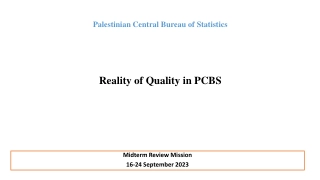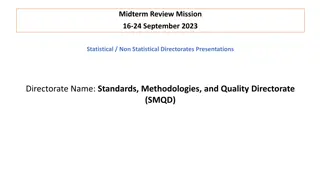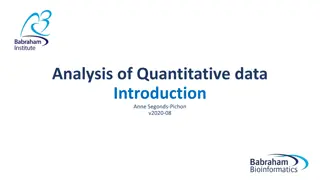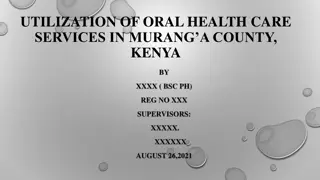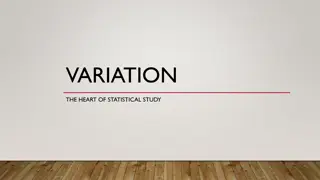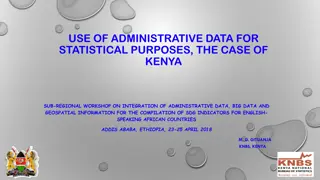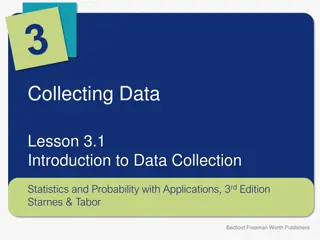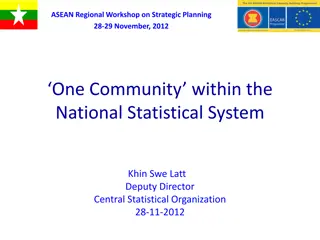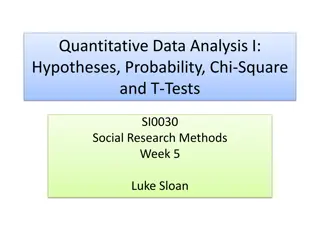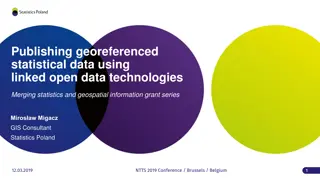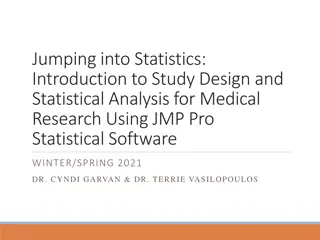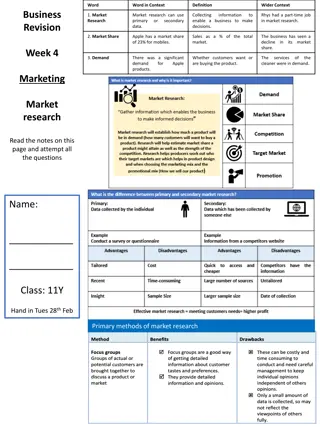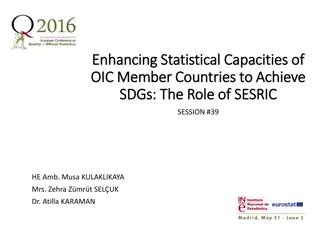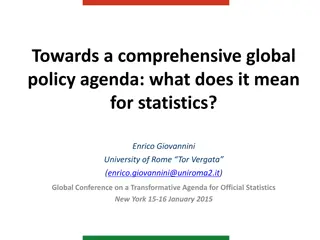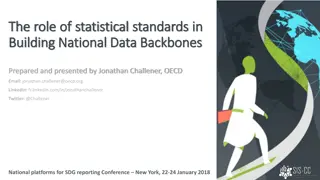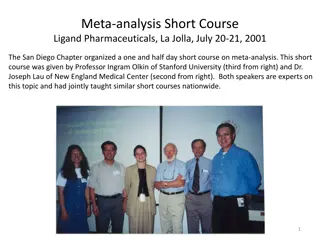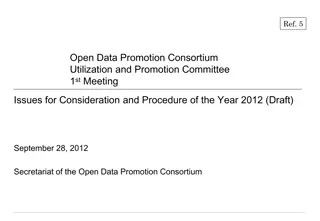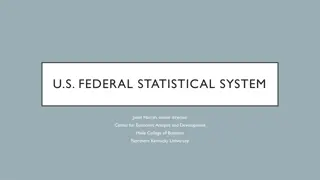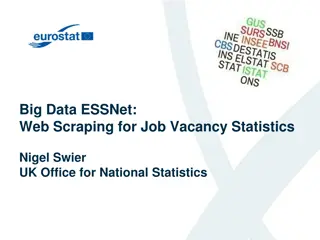Enhancing Data Quality and Utilization in Market Research and Statistical Analysis
Data plays a crucial role in driving inclusive growth, fighting inequalities, and monitoring progress towards Sustainable Development Goals (SDGs). This comprehensive content delves into the challenges and opportunities in data collection, analysis, and utilization in market research and statistical analysis, ranging from demand and supply data quality issues to traditional and digital data sources, methodologies, and emerging technologies like Artificial Intelligence and Big Data. It highlights the significance of accurate, timely, and disaggregated data for informed decision-making and effective policy formulation in today's rapidly evolving economies and societies.
Download Presentation

Please find below an Image/Link to download the presentation.
The content on the website is provided AS IS for your information and personal use only. It may not be sold, licensed, or shared on other websites without obtaining consent from the author. Download presentation by click this link. If you encounter any issues during the download, it is possible that the publisher has removed the file from their server.
E N D
Presentation Transcript
International Statistics The Market & The Kitchen Dr. Safaa Amer
The Market - Demand Data Revolution changing the way that economies and societies are functioning Data for development: Sustainable Development Goals (SDG Agenda 2030) Public, private, civil society, and institutions = producers & users! More data and better data needed Boost inclusive growth Fight inequalities Understand climate change Measure and monitor progress
The Market - Demand Quality Data Data Timely Disagg regate d Data
The Market - Supply Data quality issues: Incomplete, outdated, and approximate data Data inconsistencies across sources Lack of adequate metadata and para-data Weak capacity in developing countries Data access and bureaucracy issues
The Market - Supply Based on 2017 OECD Data for Development Report 77 developing countries have inadequate poverty data Only 56% of countries worldwide have birth registration data that are 90% complete Only 37 countries have national statistical legislation that complies with UN fundamental principles of official statistics 13% of countries worldwide have a dedicated budget for gender statistics No data exist for 2/3 of SDG Indicators Serious methodological and strategic challenges
The Kitchen - Traditional Data Sources With a Recipe! With a Recipe! Output Output Methodology Methodology Basic descriptive statistics Measurement Error Quantitative Data Census Administrative records Surveys Weighted Analysis Sampling Error Statistical Analysis Frame & Coverage Error Qualitative Data Visualization Non-response Error Mixed Methods Data Management
The Kitchen - Digital Breadcrumbs Data brokers and analysts are designing algorithms with growing power Big Data: Satellite Imagery, Social Media, Health Trackers, Mobile phone companies, Banks, Web scraping, etc. Used by recruitment agencies, dating sites, election campaigns Data mining, Artificial Intelligence, Machine Learning, etc. Increasing importance in faster and higher impact : Responding to outbreaks of infectious disease Assessing and responding to natural disasters, In development to ensure no one is left behind by providing insights on the needs and location of the most vulnerable people Used recently by governments, donors, and development statisticians Changing the Map
The Kitchen - Where are we? High demands on national statistical systems Low statistical capacity Insufficient budget overwhelmed Increasing need for striking balance between: Producing data for global monitoring of development and national policy making Short term versus long term needs and results Need for protocols and standards for quality and ethics of big data use Under-utilization of the power of technologies
Shopping List! -What is Needed? Strengthening statistical systems in developing countries Greater Investment in capacity building for data collection Bridge the divide and coordinate data collection efforts Complement the data from statistical offices rather than replaces them for efficiency Invest in data visualization and communicating results in layman-terms
Shopping List! - What is Needed? Boost data production: high-quality standards while protecting privacy and confidentiality Combine multiple sources of data under a clear ethical and quality protocols Linking traditional data ecosystems to big data and bridging the digital and analytical divide
The Kitchen - Remodeling Make Statistical laws, regulations and standards fit for evolving data needs Data ecosystems fit for purpose Ethical and Quality Standards Improve the quantity and quality of financing for data Data infrastructure Boost statistical and data literacy through new approaches Sustainable capacity building Improved environment
The Kitchen - Remodeling Increase efficiency and impact through data compacts or other coordinated, country-led approaches Incentives for harmonization, accountability, and coordination Invest in and use country led results data to monitor progress towards the sustainable Development goals Vision integration across local and international needs Data accessibility Produce and use better data to help understand the overall state of SDG financing Reduce duplication, targeting investments, accounting for everyone s needs, aligning country priorities for data
Better Data Creative Cook/Statisticians Better Policies But more responsible one! Better Lives No one left Behind! Fake News & alternative facts
Last But Not Least - The Consumer! Data use challenges Under-utilization Miss-utilization Data limitations Data documentation Tools for analysis Capacity to use data especially complex survey data Ethical considerations Need to label our data for the consumer and raise statistical awareness

 undefined
undefined


